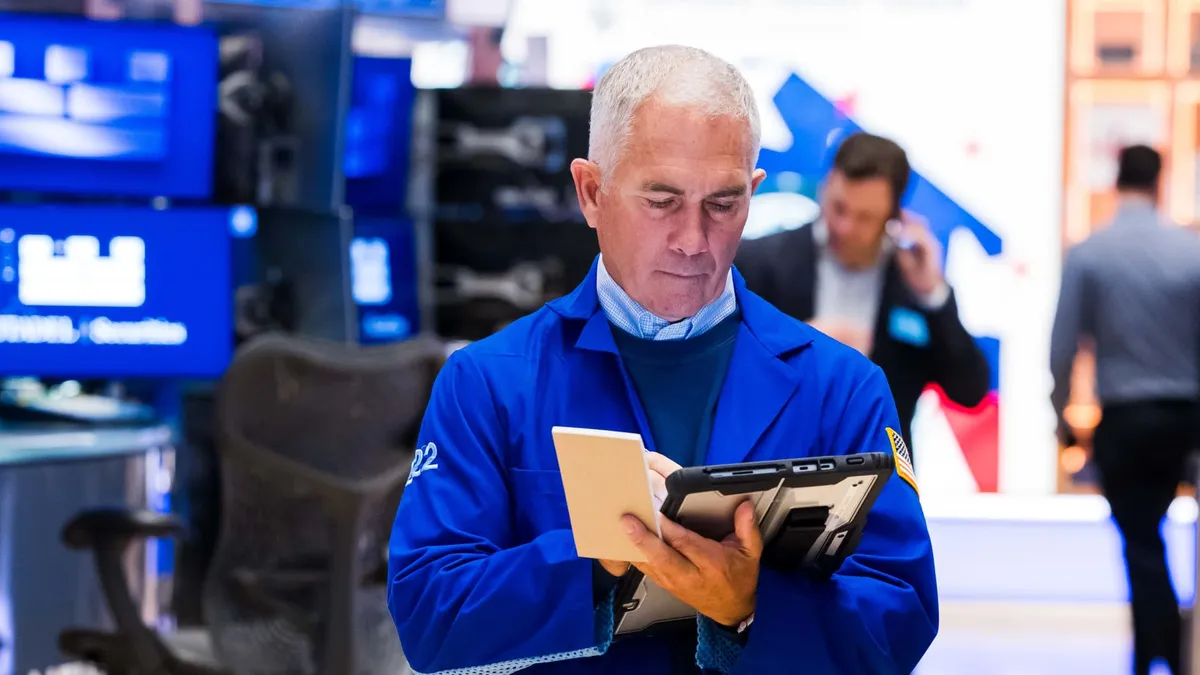
On Thursday, The S&P 500 and Nasdaq Composite indexes experienced a retreat from their recent all-time intraday highs. This pullback comes as the ongoing U.S. government shutdown continues to loom over the market. The broad market index fell by 0.28%, closing at 6,735.11, while the tech-heavy Nasdaq slipped by 0.08%, finishing the day at 23,024.63. At their peak during the trading session, the S&P 500 rose by 0.2%, and the Nasdaq was up by 0.1%. In contrast, the Dow Jones Industrial Average faced a decline of 243.36 points, or 0.52%, closing at 46,358.42.
Both the S&P 500 and Nasdaq had just come off a record-setting session on Wednesday. The S&P 500 marked its eighth gain in the last nine trading days, while the Nasdaq closed above the 23,000 mark for the first time in history. Meanwhile, the Dow finished slightly below the flatline on Wednesday, as blue-chip stocks lagged behind. However, Nvidia played a critical role in limiting the Dow's losses, rising more than 2% on the previous trading day after CEO Jensen Huang mentioned to CNBC that demand for computing has surged significantly this year.
David Wagner, head of equities at Aptus Capital Advisors, commented on the market dynamics, stating, "The market has had a relentless surge since the April meltdowns, showing signs that some believe the stock market is overheated." He added that there have been calls for a breather, even as the classic dip-buying strategy remains strong. Wagner further elaborated, "This market just continues to grind up. It's just some under-the-hood rotation that can cause intraday volatility."
In terms of specific stock performances, software vendor Oracle was a standout on Thursday, along with AI powerhouse Nvidia, which reached a new all-time high. Oracle's shares climbed 3%, while Nvidia rose nearly 2%. Both companies had experienced losses earlier in the week due to reports indicating that Oracle's cloud business is facing challenges with thinner margins while renting Nvidia chips.
Investors are closely monitoring the developments surrounding the ongoing government shutdown, which entered its ninth day on Thursday. The Senate has failed for the seventh consecutive time to pass competing funding proposals, with little indication that Republicans and Democrats are making headway in negotiations. Wall Street is particularly concerned about the potential impacts of the shutdown on the U.S. economy, with some effects already becoming evident.
For instance, the IRS announced it would furlough nearly half of its workforce due to the shutdown. Additionally, a shortage of air traffic controllers has led the Federal Aviation Administration to delay U.S. flights. Delta Air Lines CEO Ed Bastian commented on the situation, stating that while he has not yet observed any impacts from the shutdown, he warned that issues could arise if the situation persists beyond another ten days.
Despite the overall market pullback, Delta Air Lines saw its stock jump 4% during Thursday's session, buoyed by better-than-expected earnings. Similarly, Costco shares rose by 3% following the release of strong September sales data. Tom Hainlin, a national investment strategist at U.S. Bank Asset Management, believes that the earnings reports from Delta and Costco indicate a resilient consumer in an uncertain macroeconomic environment. He stated, "You can kind of see in real time whether there's an inflection point in what consumers are doing, and we haven't seen it yet."
As the market navigates through the complexities of the government shutdown and fluctuating stock performances, investors remain vigilant for any signs of change that could impact their portfolios.